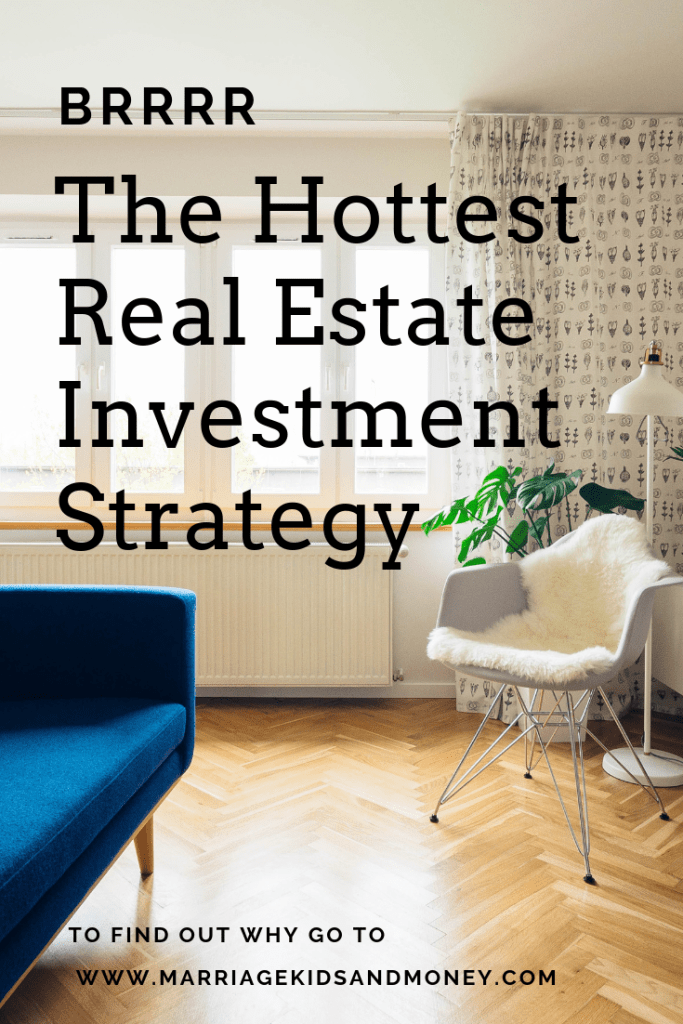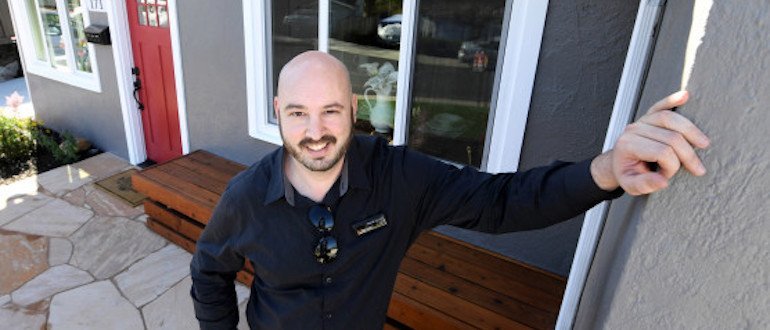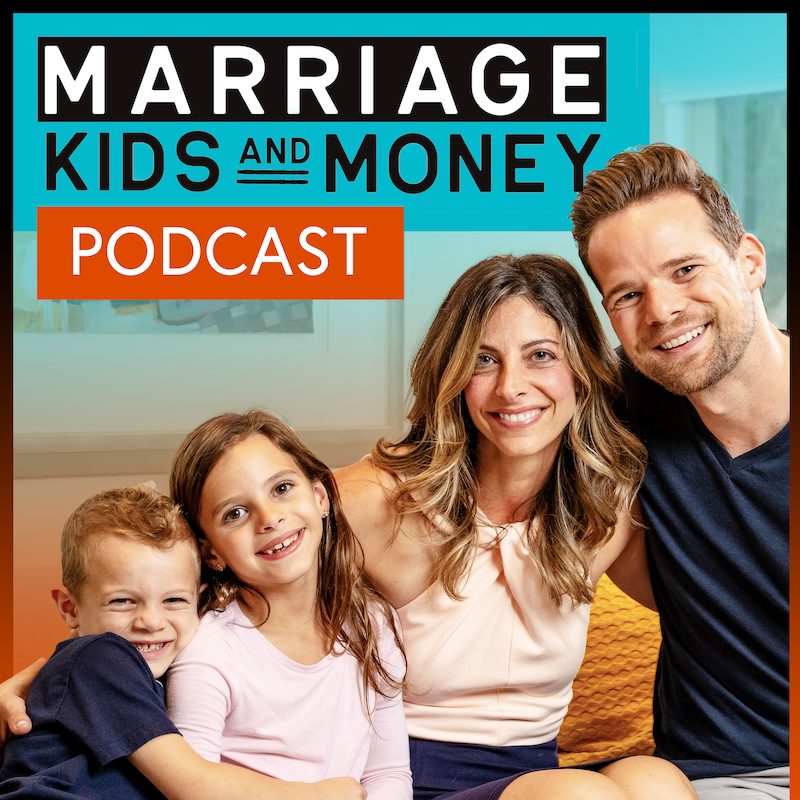As Nicole and I save up for our first rental property, I’m trying to look at all angles before we proceed. We’ve talked about taking out a mortgage again. We’ve talked about saving up to buy all in cash. One method that’s super intriguing for us is the BRRRR Method of real estate investing. We’re going to discuss what that is and how it works today.
And the man that’s going to enlighten us to the magical ways of the BRRRR is David Greene. He is the co-host of the BiggerPockets Podcast, a top producing real estate agent in Northern California and the author of the new book called BRRRR: Buy, Rehab, Rent, Refinance and Repeat.
Today, we're going to learn why he thinks BRRRR is the hottest strategy in the real estate world.
Andy Hill: What does BRRRR stand for?
David Greene: BRRRR is an acronym and it stands for Buy, Rehab, Rent, Refinance, Repeat. And it's really the most efficient way to buy and hold rental properties. And it would kind of stand in comparison to what we call the traditional method.
Why do you think BRRRR is better than the traditional method?
When you buy real estate (which is an amazing investment when you hold it for a long period of time), the hardest part of doing it well is that you put your money into a deal, like the downpayment, then you put more money into fixing the house up. Then your money sits in that house. While it will earn you a return, and that return will be really big over the years, it's very difficult to do it at scale because there's so much money that's required upfront. And the only way to get that money back is to sell or refinance the property.
Now when you sell a property you have capital gains taxes, you have real estate commissions, you have closing costs. You may have to fix the house up before you sell it. You may have to evict a tenant. There's a lot of expenses that are associated with the sale of a property.
When you refinance a property all you have are closing costs. So it's much cheaper to get money out through a refinance and avoid taxes and avoid commissions and everything else. The problem is most people don't buy property that they have enough equity where they can pull their money back out.
So the BRRRR strategy is all about buying a fixer-upper home, making it worth more and then pulling your money out once the property is worth more so you can go buy another house.
How do you find a good deal on your first rental?
When you're investing in real estate, what you're doing is you're buying a little tiny business. Every house you buy isn't just a home, it's actually an income stream. So you're paying a certain amount of money for the right to collect a certain amount of rent. And then you have expenses that go with it. And balancing that is how you decide if you should buy the deal or not.
Now, like any good business, if you wanted to go buy a restaurant, you would look at their books and you would see well how much are they making versus how much are they spending and you want to see they're making more. The more they're making, the more they're going to charge you for that business, right? That's how we value businesses.
Well, with rental properties what you're hoping for is they've got the opposite thing going on, they are earning less than what it costs them to own it. They're bleeding money, and they need to get rid of this. It's an anchor to them, and it's pulling them down.
And you want to be able to step in and buy that anchor, but you can turn it around to where as opposed to being an anchor, it's a balloon, that's going to pull you up.
Related Article: Why I'm Buying My First Rental Property in Cash
What should we look for when buying our first rental?
You don't want to buy something necessarily where the roof is falling off, or it's got foundation issues, or horrible termites have infested this entire house. That's going to be very expensive to fix.
And you can do it but you have to get such a good deal to make that makes sense. They're not going to want to sell it at that price. Instead, we look for things that would make a big difference cosmetically, but wouldn't cost a ton of money.
So you don't want electrical problems. You don't want plumbing problems. You want ugly carpets and nasty wallpaper. Cabinets that could really use to be painted. You want a house that just smells like cat pee. Things that would scare away the average buyer who want nothing to do with it. But to the investor who doesn't see cat pee, they see a dollar sign.
During the rehab, what areas should we focus on to get the most bang for our buck?
You want to look at what makes a house worth more. With single-family homes, homes are valued based on what other houses around them sold for. It's very simple. We call it comparable properties.
Let's say the house across the street that's the same size is worth $150,000 and it has a really nice kitchen, landscaped yard and really nice master bathroom. If your house is on the market for $110,000, you can feel very confident that if you made your kitchen, bathroom and yard look like that one you'd be adding $40,000 of equity. And if you can do that for less than $40,000, it makes sense to do it. It's very simple.
So that's the first thing you should look for, floor plans or actual upgrades that are outdated. A closed-off kitchen is something nobody wants but if you could just knock down a wall and open it up that makes the house worth more.
The other thing I would say is, let's say the house across the street is 1,500 square feet and the house you're looking at is 1,000 square feet and it's listed for $50,000 less. If you can add square footage to the home and make it the same size, that's another way that you can add value to it. Right? And if you can do it for less than the $50,000, it's a good bet.
So what I do is I look for the house that's undersized and ugly and smells like cat pee and has something wrong with it, and then I go and I say, “How could I add square footage to this house as cheaply as possible?”
Then I can just ask a contractor, “What would it cost to add on to this property?” If he says, “Hey, we can do all this work for 30 grand, but it's going to add $100,000 of value to the house.” Absolutely, I'll do that. I'll borrow the 30 grand from the bank, now it's worth $200,000 and I can either sell it or I can refinance it and go buy my next house.
So once my house is all fixed up and I have renters in it, how do I get it refinanced so I can do this process all over again?
Your best bet would be, before you even get involved in the process, to meet with a banker and say, “Hey, I want to do this, will it work for you guys?” And most banks are going to say yes. They are going to have loan programs that you can find out about before you start.
The first thing that you're going to want to ask about is the interest rate. They're going to tell you whatever their current interest rates are, but that doesn't mean that's what it's going to be two or three months later when you go to refinance so keep that in mind. The next thing they're going to ask about is what's called the loan to value. Bankers call this the LTV. That's the ratio that they will let you borrow versus what the house is worth.
So whenever we go buy a home, what we think is, “I had to put 10% down.” But what the bank is thinking is, “I had to lend him 90% of the value of that house.” The smaller the percentage they're lending you, the safer it is for them because they're always looking at what happens if you can't make your payment. The more they've given someone, the harder it is to get that money back, right? So banks always want a lower LTV and investors always want a higher LTV because they want more of that money back to go invest in the next property.
So you can typically find the balances for an investment property right around 75%, which would be the equivalent of buying a house at 25% down.
Related Article: How I Wasted Over $13,000 Refinancing My Mortgage
A lot of Dave Ramsey fans listen to this show, why do you feel like it's best to do BRRRR instead of just saving up money to buy your rentals in cash?
You can do that. It's very similar to a person who has no weight running a race versus you that's saddling yourself with 50 pounds of weights and saying, “Well this is safer,” and trying to run that same race. You are not going to get close to as far as that person can get who's unencumbered to run.
Dave Ramsey, I'm a fan of his. He's very big on keeping you safe. And he knows that a lot of people will use debt in a negative way because you can be careless and reckless, and there's no debt police to make sure you're not doing it wrong.
I look at it like there's good debt and there's bad debt. Bad debt is buying something that costs me money every month, a motorcycle, an RV, a boat, cars. They become worth less every month, and I have to put money into them.
Good debt is something that I buy that makes me money every month. A rental property is earning me more money than what it's costing, right? So I want, in my strategy, to take out as much healthy debt as I possibly can, maintain a healthy amount of reserves and live beneath my means so I never have to worry about if I couldn't make those payments in a worst-case scenario, and then let my tenant pay that debt off for me.
In a world that we live in where people don't manage money well, there will always be tenants. They're going to need a place to live. So why not give them a place to live and let them pay my mortgage for me because they didn't manage their money well, and I benefit from the fact I do manage my money well while also giving them what they need.
If there were no tenants in the world, and everyone wanted to buy a home, I think Dave Ramsey's advice would probably make a little bit more sense. But there's such a demand for people that need somewhere to live. And the difference between saving up five or ten thousand dollars which is what you might leave in a deal after you BRRRR and $100,000 which is what it would take to buy it is massive.
I mean, human beings are not living to 900 years like they did in Methuselah's age to where we can afford to get by. You don't have that long and you're not going to make much progress if that's why you do it.
CLICK THE PLAY BUTTON ABOVE OR LISTEN ON:





Show Sponsor
BESTOW

Get your quote for a term life insurance policy in just minutes.
VSP VISION CARE

See what you could save with an individual vision plan.
Guest Resources – David Greene
Podcast: BiggerPockets
Book: BRRRR: Buy, Rehab, Rent, Refinance, Repeat
MKM Podcast Resources
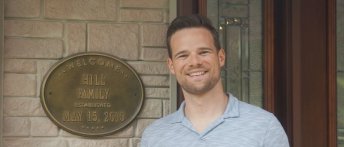
Personal Capital: Track your net worth for FREE and receive a $20 Amazon credit! (FYI – You’ll need to sync up one investment account)
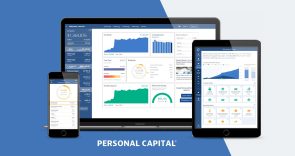
Thriving Families Facebook Group: Join our new FREE Facebook Community!
Young Family Wealth Playbook (FREE): 7-Steps to Solidifying Your Family’s Future Wealth
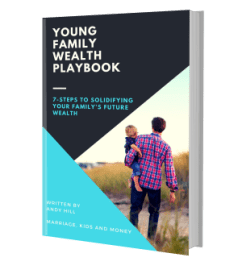
Share Your Wins

If you have a financial victory you want to share on this show, please leave me a voicemail (or an email) and include the following:
- First name
- Location
- Your recent big win
- How you did it
- If/How you celebrated
- Your financial plans for the future
Your story will inspire others to save more, make more and plan for their family’s future.
Support this Show
If you enjoyed this episode, here are some excellent ways to support the show:
- Leave a review for the show on Apple Podcasts or Stitcher
- Leave a comment below
- Check out my Recommended Resources Page
- Subscribe to the show on Apple Podcasts, YouTube, Spotify, Google Podcasts or Stitcher
- Join our Thriving Families Facebook Community – learn and help other families grow their wealth
I truly appreciate the support everyone!
Questions?
I’d love to hear from you!
If you’d like your question featured on the show, reach out and let me know. It would be my honor to support you in your journey toward financial freedom.
Leave me a voicemail or connect with me on Twitter, Facebook or shoot me an email.
Carpe Diem Quote
“The major fortunes in America have been made in land.”
-John D. Rockefeller
What do you think of the BRRRR strategy?
Please let us know in the comments below.
SUBSCRIBE TO THE PODCAST TODAY (IT’S FREE):





